Listen Now
About the Episode
Recorded 29 March 2022
Episode Digest
Curiosity, love of learning, and privilege
- My starting question for the podcast was – why do some people still have their curiosity intact while for most of us it tends to wear off, get chipped away or otherwise ground down? What makes curious people so energising to be around?
- I was particularly interested in the connection between curiosity and learning, because for many curious people, learning seems to be a kind of superpower. It may even be that curiosity itself simply is a love of learning.
- But the term ‘curiosity’ doesn’t resonate with everyone and can invoke feelings of privilege because it is perceived as related only to people with time on their hands, or those who, if life were a classroom, had only ever sat in the front row.
- For some people, curiosity expresses itself through action, doing and tinkering, being interested in things and then quickly finding out about them and absorbing them.
- People who express their curiosity through taking action sometimes hesitate to label themselves as 'curious', perhaps either because they don't feel like they belong in the same group of people who are stereotypically curious, or more tellingly, perhaps because they don't want to be mistaken for that kind of person.
Why Front Row and Back Row are useful categories
- Front row and back row are interesting and categories. Like all social theories that divide the world into two kinds of people, it oversimplifies things, but the point of oversimplifying things so bluntly is precisely to draw our attention to something we might otherwise fail to see.
- For Chris Arnade, a former Wall Street trader and physicist at John Hopkins University, what we risk failing to see is that when front row people end up talking only to each other about how to make sense of the world and design the societies we live in, a lot of people get left behind and made invisible. Arnade has a book called 'Dignity: seeking respect in back row America'.
- School and school-based institutions have so much to do with this topic. Not for the learning itself but because of the habits of mind, these institutions form, the discipline they set. the social status they confer, and the resulting way they sort people, opening doors for some and shutting the gates on others.
- In institutionalised education, what ends up becoming most important is the institutional part.
- Most schooling isn't about the learning but about being able to pass tests.
- What's at stake isn't your learning or understanding but whether or not you're considered fit to be admitted entry into an in-group, comprised of people who are the best at passing tests.
- At that point, we're a long way from curiosity, because one of the most reliable ways to shut off someone's curiosity is to make them preoccupied with passing your test.
- This isn't an argument against formal education or school-based institutions per se. But the way we do formal education and school-based institutions isn't the best way if we want to keep curious people excited and engaged, or if we want to avoid excluding all the ordinary but perfectly capable people who haven't lived their lives in the front row. At which point we would do well to remind ourselves, what actually is the point of education again?
- When I started the podcast, I had an ambition to eventually start a company around the idea of life changing learning experiences that set the soul on fire.
- This is why I ask everyone who comes on the show to pick a life-changing learning experience they would gift to someone and why. What's always striking to me about the answers people give to that question is that they're never the kind of thing you could get to by designing a course of videos or passing a test.
- If we're looking to design life-changing learning experiences that set the soul on fire, institutionalised education may not be the best place from which to start.
How we can recognise people who are ‘still curious’
- They follow their interests for their own purposes, and do so with a quiet insistence regardless of what anyone else might be doing or saying.
- They have a powerful set of complementary qualities, including ambition and perseverance, that help keep them safe and successful on their own terms.
- They love learning and putting that learning into action.
- They remain optimistic and inquisitive in the face of failure, setbacks, and life's relentless grind.
- They retain a sense of playfulness, humility, and wonder.
Learning as a superpower
- Curious people are great at learning. They're interested in so many things that they've had to learn how to learn efficiently, sifting for and absorbing what they need.
- They can get across something quickly and in a pragmatic way. They start looking at a topic from scratch and are able to quickly map the space, figure out what's relevant and important and then absorb it. Not in a superficial, 'I-could-probably-pass-a-test-about-this' way. They actually absorb it by taking it on, understanding it inside out and becoming fluent in it.
- There's a word for this kind of learning - grokking.
- People who are still curious get through life by constantly grokking stuff. By grokking as a kind of way of being. In other words, they might be grokkists.
Danu's squiggly career and troubled relationship with education
- I've always loved learning. I've always been curious. I've always loved being around places and people that are about learning. But I haven't always loved school.
- I learned to read and count before I started school. When I started my first schooling year and found out what we'd be doing, there was a sense of disappointment that fell on my shoulders, which has never really left.
- I was good at school and got good marks. The teachers would often ask me to help the other students or to help them with their marking.
- My primary school even had a gifted and talented organisation, which sounded exciting. But it turned out they didn't really have an organisation or know how to run one, they just had some good intentions. So they thought it would be a good idea for me to run it, which they framed as a fun challenge. But I had my own interests, which I preferred to follow instead. I started to discover that often there's no reward for being 'gifted', other than you end up having to do other people's work for them.
- In high school I was often frustrated by the lack of technological literacy that my teachers had. So I set up an after school class in which I offered to teach the teachers how to use an understand computers, which was very popular. I was never really interested in homework or assignments.
- I did spectacularly well in some assignments and I would completely fail others because I would not do what was required for the test. There's that quote by John Lennon, who says, 'when I was five years old, my mother always told me that happiness was the key to life. When I went to school, they asked me what I wanted to be when I grew up. I wrote down happy. They told me I didn't understand the assignment. And I told them they didn't understand life.'
- The longer I went on, the more I came to understand that school is ultimately about discipline and passing tests. And I started to discover the experience of being punished for my curiosity.
- As a teenager, I made a conscious decision that whenever I was forced to choose between sacrificing my curiosity for the sake of passing a test or conforming to some intellectual standard, I would refuse and accept whatever consequences came.
- I used to get poor grades and detentions for my stubbornness. And several teachers were dismayed that they 'had to' fail me because I hadn't done such and such a thing. Even though my work was sometimes the best in the class. Often the assignment was just boring, so I would take a different approach that felt more interesting. And they would tell me I didn't understand the assignment. I wish I'd had that John Lennon quote to share with them then.
- I ended up dropping out of high school in my final year.
- Ironically, probably the last straw that made me decide to drop out was being fortunate enough to be offered a try-before-you-buy university experience, where I had the opportunity to do a university subject for credit while completing my final high school year. It was unbearable. I just saw more and more of the same thing stretching out in front of me and I couldn't handle it. So I dropped out, with about six months to go.
- I went to work in a shop called Australian Geographic. I burned through a whole bunch of different retail and customer service type jobs. I had ideas about how to do things and those ideas were not always well received. So either I would get bored with the job or I would be politely but firmly asked to seek my opportunities elsewhere.
- But it was good experience. I was very self confident, too much so, in retrospect. So I went through all of these different jobs for a few years and eventually I started my own business with a friend, doing logo design and corporate identity work for small businesses, and also teaching computers, which I had always been good at.
- The business went pretty well for a while. We were never short of clients, feedback was good. But I had no idea what I was doing. I was just doing things by feel and I made a lot of mistakes. In the end, the biggest mistake was probably trying to grow it too far too fast without a solid foundation. And I ended up losing all my money and some other people's money.
- At age 24, I went bankrupt. That was a life changing learning experience for me. To be honest, it had never occurred to me that there was any possibility that the business might fail. I'd always been good at anything I tried to do, and I just assumed I would be good at this.
- That failure was a dose of reality I needed. And after dropping out of school and not being able to hold down a job for very long, I realised it was time to have a look at myself and reassess some of my choices.
- In the first year after going bankrupt, I got by doing bits and pieces of freelance work and staying with my parents. As a kind of therapy project, I decided I would write a book about what I had learned from teaching technology over the last few years. A guide to computers for the curious and confused. That was a satisfying experience and I self-published it on Amazon. You can still find it there.
- In the end, I decided I needed to go 'back to school'. In 2009, at the age of 24, I gained entry to a policy and research degree at RMIT in Melbourne. University was a very tedious and crushing experience, but there were some parts and some people I really connected with and it gave me concepts and vocabulary about things I was interested in, as well as crucial social legitimacy.
- Overall, although I didn't enjoy the experience, I'm thankful because I would not be able to theorise in the way I do about the problems of institutionalised education without that university experience.
- I was inspired by a particular professor at RMIT who taught courses on ethics, public policy and the history of ideas. He was a kind of heretic in his own department and always getting in trouble with the institution, so I was instantly drawn to him. I became his research assistant, which was really a way for him to become my mentor. He was a kind of working class rebel, hardly from the front row, but he had made his way into the university system and stayed there to hold space and give a leg up to other people who needed it.
- I left RMIT with a master's degree in social science and public policy. I did an honours thesis about authority, legitimacy and the health of and the threats to liberal democracies.
- I did some teaching into undergraduate classes and, while the teaching itself was rewarding, the way the institution treated its sessional staff undermined the experience.
- I toyed with moving on to doing a PhD in Germany or the UK, and I bummed around in those places for a bit. In the end what I really needed was some money and some stability, so I took a fixed-term job back home at Bond University, and that's how I fell into research management and the tech-for-research space.
- My boss in that job gave me a lot of freedom and autonomy and gave me interesting problems to solve where I could learn new things. I ended up leading a software system implementation and change management project, which was really interesting and satisfying.
- That led to a larger research management position at another institution. And then on to being a regional product specialist for a software vendor in that space.
- I found that my long standing love of technology, my experience in retail and customer service, my research training, and my aptitude for just getting along with people in a nonjudgmental way really all came together in these roles, in a way that gave me a bit of an X factor.
- But working at the heart of the university system really did nothing to dispel my thoughts about formal education and its perverse incentives. In the back of my mind, I'd always harboured hopes of doing another company again, one day.
- When the pandemic happened, kind of brought those plans into sharper focus. Like a lot of people, I was re-evaluating my life or what I was doing, what was important. I decided I could bring forward those plans, so I made a decision to go to business school – a new disruptive online school called Quantic that kind of appealed to my piratical sensibilities. It was a really good experience which I finished in early 2022.
- In my time in and around education, I've never really found something that felt like it was for me, even though I love learning. School has usually been an obstacle in my way to understanding joy and fulfilment and rarely something enjoyable, enabling or satisfying. Even when everyone has good intentions and great people are involved, something about the nature of school itself always lets the whole thing down.
- I think there are other people like me. Some who are probably far more sensible and less stubborn. More inclined to do what they need to do to get by and not make choices to their own self detriment as much as I've done over the years.
- I know these people exist because I meet them. Some are front row people who are dismayed by the way things are and do their best to move the needle where they can. Some are not front row people who, by choice or by necessity, work around the system and would hardly mourn its downfall. Some are just ordinary people with no particular opinion on school one way or another, but who would gladly take a better option for learning if it were made available to them. Almost all are just trying to figure things out and do the best they can without getting too overwhelmed.
- Most of my favourite people comprise a band of educational artists, misfits, pirates, and anarchists. I really just want to wait to help the misfits fit, not by sanding down or lopping off the pieces that make them unique until they fit into a prescribed shape that the current game demands. But by playing a different game altogether.
- I want to build something for us - a way of doing the type of education we would choose if it were ever offered to us that way. I'm calling it Grokkist because grokkists are who it's for. I hope it will be a way for these kinds of people to find and connect with each other over things they find exciting and care about.
- We hear constantly about the transformative power of education to change lives. Yet deep down I think we don't really expect this-or-that learning program to deliver a life-changing experience like the moments we recall that truly excited us. Even for those who work in education full time, designing education that ignites the soul seems like a far away dream or somehow forbidden. And when we think about it that way, it is, but it doesn't have to be.
- The key premise of Grokkist is that life-changing learning happens when the machinery of education gets out of the way and a curious learner following their interests is able to connect with a teacher or guide who is as excited about the learner’s experience as they are. My approach to educational design through Grokkist is to design out all the distracting, harmful and unnecessary elements of traditional learning processes until what remains is an exciting transformative and wholly resonant encounter for an individual learner.
Stuff I Mentioned
Quotes
- ‘When I was five years old, my mother always told me that happiness was the key to life. When I went to school, they asked me what I wanted to be when I grew up. I wrote down happy. They told me I didn't understand the assignment. And I told them they didn't understand life.' - John Lennon
Books
- Dignity: seeking respect in back row America - Chris Arnade
- The Digital Migrant: a guide to computers for the curious and confused - Danu Poyner
Audio Highlights
Episode appetiser - What it means to be 'still curious' (20 sec)
0:00
/0:20
Some people connect curiosity with privilege (50 sec)
0:00
/0:50
On being a grokkist (59 sec)
0:00
/0:59
Why Chris Arnade's 'front row, back row' social theory is valuable (37 sec)
0:00
/0:37
Curiosity can be expressed through action, doing and tinkering (29 sec)
0:00
/0:29
Interactive Transcript
Note: This is a machine-generated transcript and may contain errors.

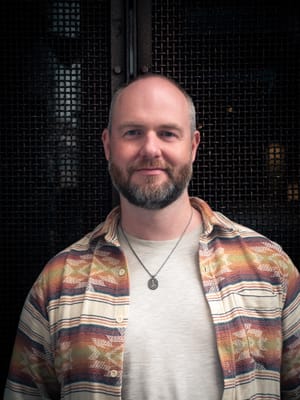
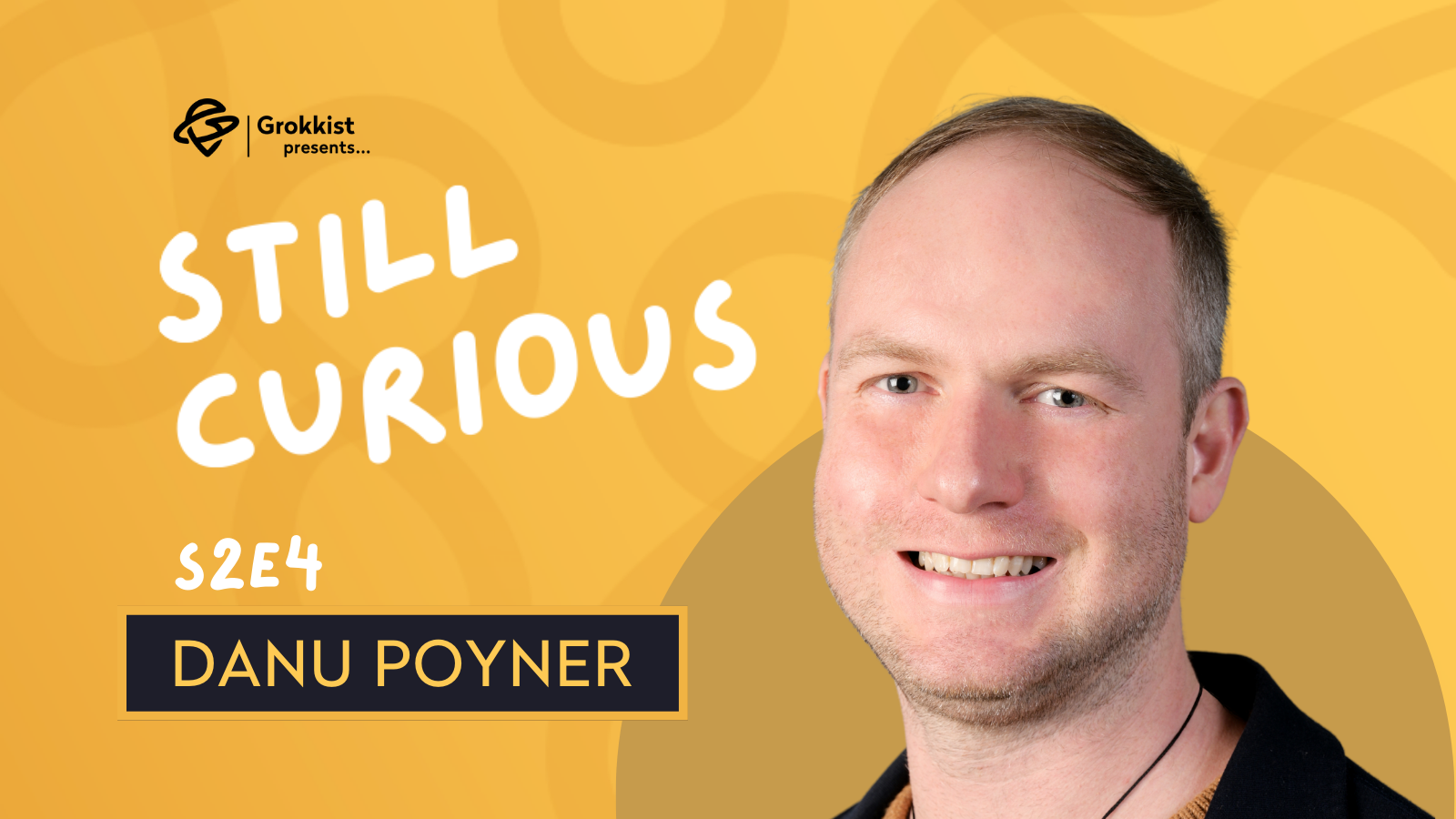
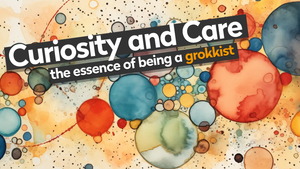


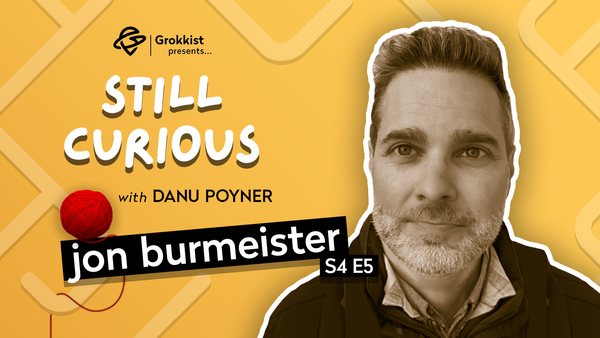
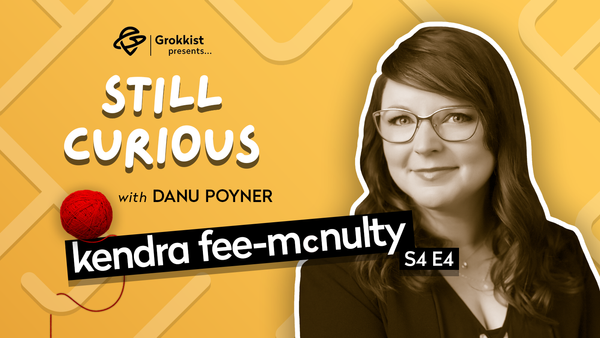
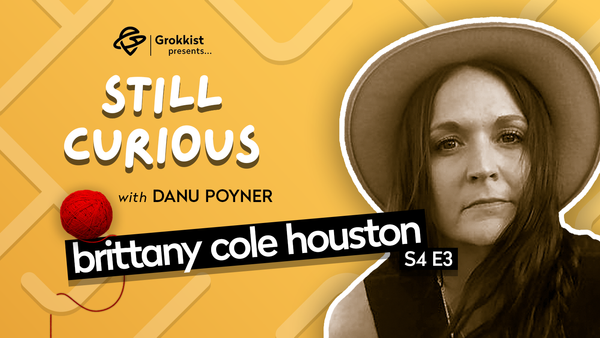
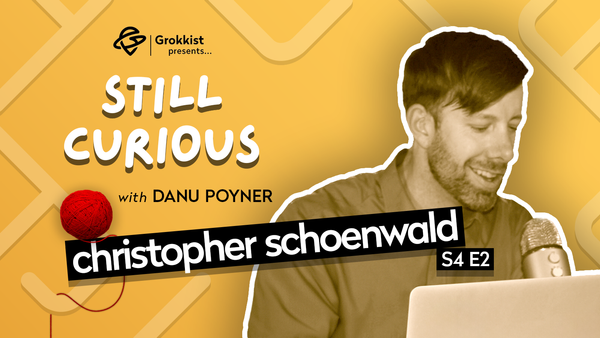
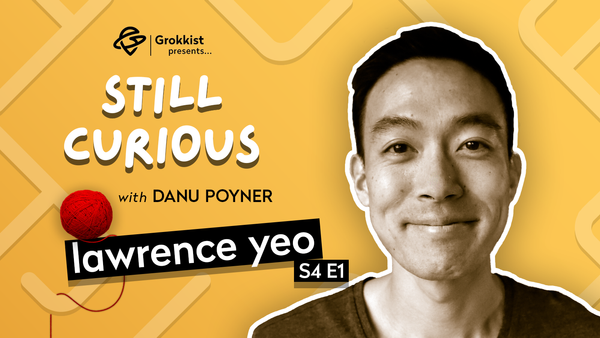
Member discussion